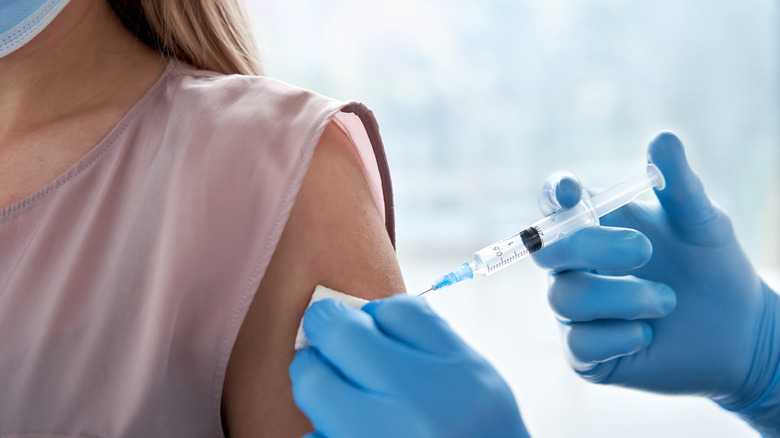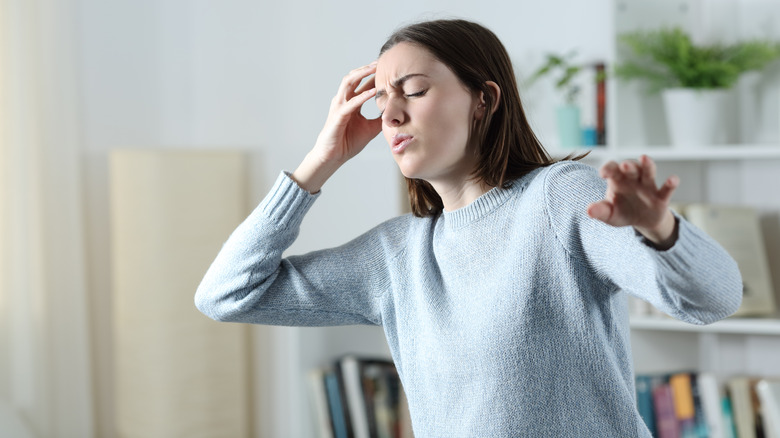What's Really Happening When You Get Dizzy After Getting A Shot
Feeling faint or dizzy at the sight of needles is more common than you might think. Actually, it's a perfectly normal reaction, so normal in fact that it's been given its own name, a condition known as vasovagal syncope (via Healthline). Vasovagal syncope occurs when your body overreacts to certain triggers, like giving blood or getting vaccinated. In response to this stress, your body overstimulates the vagus nerve, causing your blood pressure and heart rate to drop suddenly.
This involuntary reaction can reduce the amount of blood flowing to your brain, causing you to feel dizzy and lightheaded. If you're standing up when these symptoms occur, you may even faint or briefly lose consciousness. Other symptoms prior to fainting include nausea, weakness, pale skin, feeling sweaty or clammy, blurred vision, and tunnel vision. If you do end up fainting, you'll likely regain consciousness in a matter of seconds. When you wake up, however, you may experience nausea, lightheadedness, or fatigue. It's also not uncommon to wake up feeling a little disoriented.
How to prevent a fainting episode
While there is no way to completely prevent vasovagal syncope from occurring, you may be able to reduce your frequency of fainting (via Medical News Today). The simplest and easiest way to prevent yourself from fainting is to identify and avoid any situations that might trigger a fainting episode. This is not always feasible, however. Even though you may be squeamish around needles, you'll most likely have to get vaccinated or have blood drawn at some point in your life.
That's why it's important to stay hydrated throughout the day, especially on days where you know you'll be around needles. Drinking plenty of fluids will help you maintain blood volume and avoid getting dehydrated, which may trigger a fainting episode. Looking away when you're getting a shot or injection can also help prevent you from fainting. If you start feeling faint, however, sit or lie down immediately. This will help you avoid a fainting episode and prevent any fainting-related injuries.


